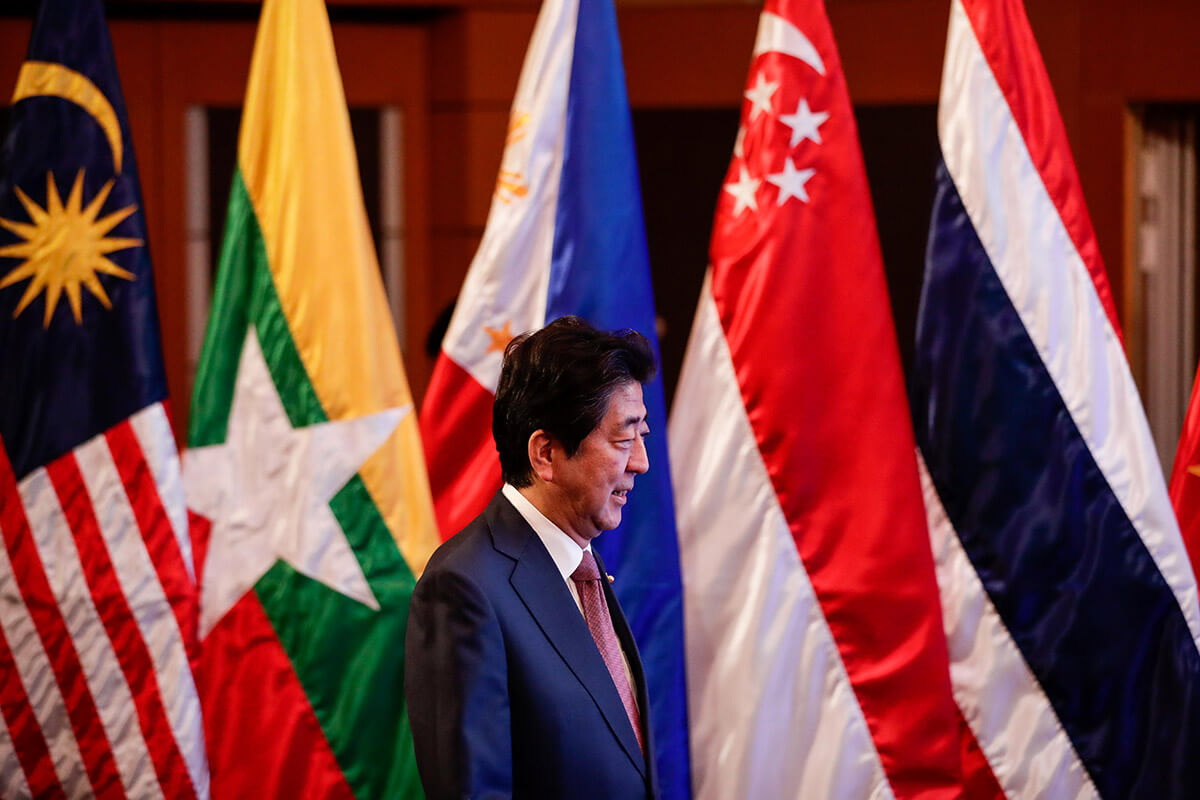Japan has announced it will roll out a high-tech system that will “comprehensively manage trade transaction information with members of the ASEAN bloc”. Twenty top Japanese companies, along with its government, are pushing to digitise information on shipments, remittances, and insurance, in order to streamline import and export procedures.
In the recent past, Japan has bolstered its policy of diversifying its supply chain, and the Southeast Asian region has featured prominently as part of that drive. Shinzo Abe’s government has decided to offer subsidies to 87 companies to move production to Southeast Asia and expand operations within Japan. The grants total to $653 million, indicating the first step towards decoupling from the Chinese economy.
Earlier this month, Japan and ASEAN revised their free trade pact that facilitates cross border flow of services and investment. The agreement aims to promote economic cooperation between Japan and five of the fastest-developing economies of ASEAN—Laos, Myanmar, Singapore, Vietnam and Thailand. The ASEAN grouping represents Japan’s third-largest trade partner after China and the US, respectively.
Reports suggest that twenty private Japanese enterprises will participate in the new high-tech data system, including the likes of Mitsubishi Corp and NYK Line. By using blockchain technology, the system seeks to improve transaction data security, and standardise shipping and customs clearance. Data on trade transactions across multiple industries will be stored using artificial intelligence. In turn, the new data system would help in making supply chains more efficient, as the system would aim to both identify and resolve problems swiftly.
The new technology-driven trade data system speaks to Japan’s supply problems arising from the COVID-19 epidemic. Tokyo faced significant disruptions to its automobile industry, which is heavily dependent on Wuhan, from where the virus is known to have spread worldwide. Through the new data system, the time taken for export and import procedures would reduce by about 40%.
Tokyo has been working with ASEAN and India as part of its drive to move business out of Beijing. A Japanese Trade and Ministry official stated: “Even before the virus outbreak, there has been a growing need for Japanese firms to set up production bases in the ASEAN region.” The implementation of Japan’s new trade data system in ASEAN signals its intent to further consolidate its economic ties within the region and a probable move to decouple from the Chinese economy in the near future.
Japan to Set Up High-Tech Trade Data System With ASEAN
The move aims to digitize information on shipments, remittances, and insurance.
August 10, 2020

Japanese Prime Minister Shinzo Abe arrives for the 20th ASEAN Japan Summit on the sideline of the 31st ASEAN Summit in Manila on November 13, 2017. SOURCE: AFP PHOTO/POOL/EZRA ACAYAN
